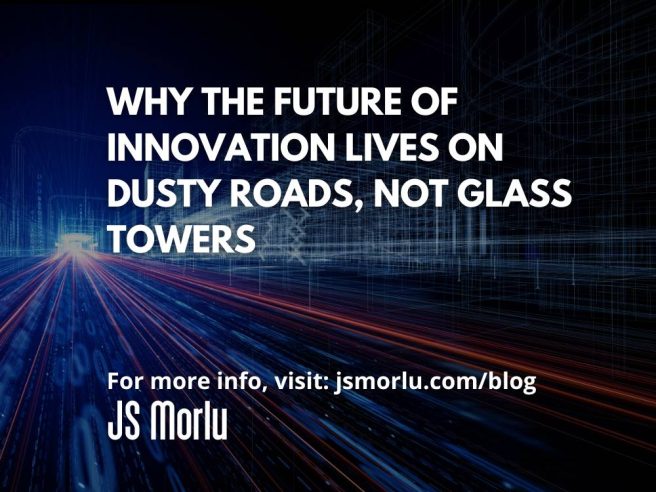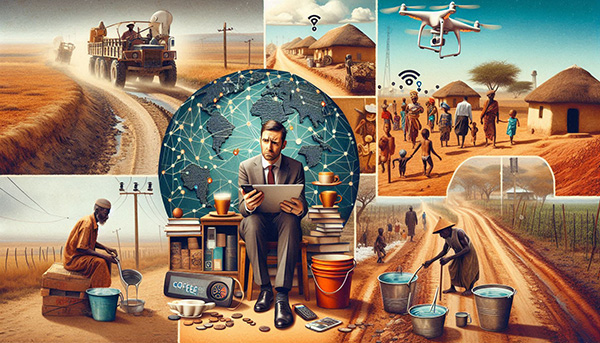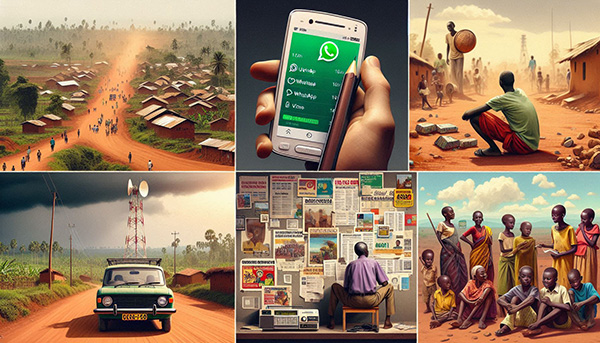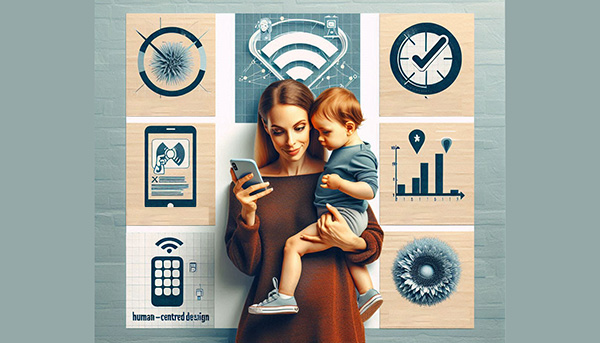By: John S. Morlu II, CPA
Let’s get something straight: the future of technology isn’t glowing under the fluorescent lights of a Silicon Valley co-working space. It’s baking under the sun in northern Nigeria, being juggled in the hands of a tomato vendor in Sierra Leone, or buzzing around a solar-powered kiosk in rural Togo.
Tech isn’t a shiny thing anymore. It’s a survival tool. And if your “solution” doesn’t work on a dusty road, it’s not really a solution—it’s a science project.
You know the kind: the fridge that tells you what’s inside (just open it), the microwave that connects to the internet (why?), or the latest fridge with a built-in TV (because you’re apparently not already distracted enough).
Fun Fact: 72% of people don’t use half the features on their smart devices. We’ve reached the point where your washing machine has more computing power than the Apollo 11 mission—and still can’t wash socks properly.
1. “Where Is Sierra Leone, Again?”
Let’s be honest—many global tech firms couldn’t find Mali or Togo on a map if the countries were circled in red and labeled “THIS WAY.” They’re building for environments where coffee delivery drones make more sense than clean water apps.
Meanwhile, nearly 100 million Hausa speakers across Nigeria, Niger, Cameroon, and Benin are still waiting for basic tools that work offline, support local languages, and don’t assume you’re fluent in Google Calendar.
One reader said it best: “The future is actually on those dusty roads across the globe.” Bingo. Because the world isn’t 5G and iced lattes. It’s uneven roads, shared phones, patchy networks, and hustle.
2. Simplicity > Space-Tech Features
When was the last time you used the ice maker on your fridge? Or the touchscreen built into your refrigerator door? That’s what we thought.
Meanwhile, someone in northern Ghana is balancing inventory, sales, and customer credit—all in a small notebook, during a blackout, while cooking lunch.
Here’s the thing: People don’t need more features. They need fewer buttons, clearer instructions, and less frustration.
- They need a savings app that works on a flip phone.
- They need a delivery tracker that doesn’t crash with poor signal.
- They need tools that speak Hausa, not PowerPoint.
3. The Dusty Road Advantage
Building tech for places with constraints actually makes your product better. It forces efficiency, creativity, and humility.
The WhatsApp voice note? Revolutionary in West Africa.
The USSD menu? Lifesaver in South Asia.
The radio ad? Still king in rural Latin America.
Fun Tidbit: In Uganda, radio call-ins and public noticeboards are still more effective than email newsletters.
4. If Your App Can’t Work on a Dusty Road, It’s Not Ready
Try this test: Take your product to a small town in Niger. Turn off Wi-Fi. Drop the signal to 2G. Hand it to someone whose first language isn’t English.
Can they use it?
Do they smile when they get it right?
If yes, congratulations. You’ve built something that matters.
If not? You built something for your VC pitch deck.
5. Build for Humans, Not Headlines
As one reader wrote: “Let others sit in San Francisco, Dubai, Shanghai, New York, and London and build for the environment around them. We’ll build for the rest of the world.”
That’s the spirit. Because when you build for the overlooked, the ignored, and the forgotten—you don’t just serve them. You unlock real global growth.
The future of tech isn’t an iced-coffee-powered lifestyle dashboard.
It’s an app that works offline, loads in two seconds, and makes someone smile in Sokoto.
Build that. And watch the world meet you halfway.
6. More Real People, More Real Problems
Let’s take a trip.
In southern India, Meena runs a family textile business from her home. Her biggest challenge? Keeping track of dozens of orders scribbled on old receipts while juggling childcare. She’s not looking for AI. She just needs a clean interface in Tamil that works on her cousin’s shared Android phone.
In rural Bolivia, Jorge runs a motorcycle repair shop without electricity half the time. He charges his phone from a neighbor’s solar panel. He doesn’t need a fancy diagnostics app—he needs a way to log his work offline, get spare part alerts via SMS, and track payments from clients who pay in three slow installments.
And in Romania, Daciana is managing her small honey farm. Her bees are thriving, but her accounting? Not so much. She’s overwhelmed by Excel, baffled by accounting lingo, and frustrated with bank portals. A voice-assisted app in Romanian that translates “gross margin” into “what’s left after jars and sugar” would be revolutionary.
Now—credit where credit’s due: A reader pointed out something hilarious and true—“When last did you use the ice maker on your fridge, or the TV they put on the fridge door?”
We laughed. We agreed. Because this is the exact problem. While tech giants add Netflix to your freezer door, real humans are boiling water in villages where an SMS reminder to take medication could save a life.
So yes, thank you to the fridge door visionary. You reminded us that most of the world doesn’t need another feature—they need the right feature.
7. What Would Jeff Bezos Invest In?
Even Jeff Bezos once said: “We want to build something that helps people. If it doesn’t help real people, we’re not interested.”
Take notes. Real people don’t care how elegant your database schema is. They care that your app doesn’t crash when the signal dips or that it works when their toddler is tugging on their arm during a transaction.
So don’t just ask, “Is this scalable?” Ask, “Is this helpful?”
8. Build With Dust on Your Shoes
If you haven’t walked a mile in worn-out sandals in a market in Bamako, sat on a wooden bench in a one-room shop in Gulu, or shared tea with a farmer in rural Sindh—you’re missing context.
Context isn’t optional. It’s the soul of your product.
So build with dirt under your fingernails and stories in your head. Build with language diversity, low literacy, poor connectivity, and actual affordability in mind.
And when you do, you’ll realize something beautiful: the dusty road leads to the most valuable markets in the world.
Not just valuable in dollars—but in meaning, impact, and longevity.
Build for those who need it most. Because the future doesn’t live on your fridge door. It lives in the hands of people who are waiting for someone to see them.
Now go. And make something worth using.
Author: John S. Morlu II, CPA is CEO & Chief Strategist of JS Morlu, a Virginia-based CPA firm with growing global operations and a mission to build smart tech for underserved markets. The company’s product line includes:
• www.ReckSoft.com
• www.fixaars.com
• www.FinovatePro.com
JS Morlu LLC is a top-tier accounting firm based in Woodbridge, Virginia, with a team of highly experienced and qualified CPAs and business advisors. We are dedicated to providing comprehensive accounting, tax, and business advisory services to clients throughout the Washington, D.C. Metro Area and the surrounding regions. With over a decade of experience, we have cultivated a deep understanding of our clients’ needs and aspirations. We recognize that our clients seek more than just value-added accounting services; they seek a trusted partner who can guide them towards achieving their business goals and personal financial well-being.
Talk to us || What our clients says about us





